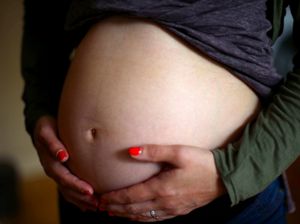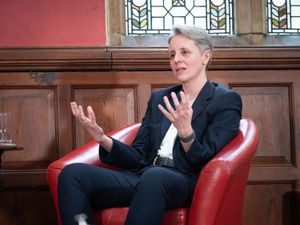Pregnancy scans using AI ‘pick up foetal abnormalities in half the time’
The AI scans took several thousand snapshots of each foetal measurement compared to three taken by a human sonographer.

Artificial intelligence (AI) helps sonographers identify foetal abnormalities in around half the time and is just as accurate, the first trial of its kind has suggested.
Researchers say using the technology at the 20-week pregnancy scan could give sonographers more time looking at areas of concern and reduce anxiety among patients by cutting scan times.
The trial, published in the journal NEJM AI, was led by King’s College London and Guy’s and St Thomas’ NHS Foundation Trust, and funded by the National Institute for Health and Care Research (NIHR).
It found AI scans were 42% shorter than standard scans and were more reliable than sonographers when it came to taking measurements.
The AI scans took several thousand snapshots of each foetal measurement compared to three taken by a human sonographer.
Researchers suggest this could improve the accuracy of measuring foetal growth and health, helping medics make earlier decisions on future interventions the baby may need.
The AI tool was also found to alter the way in which the scan is performed, as sonographers no longer needed to pause, save images or measure during the scan.
The trial focused on looking for heart problems but the researchers said the AI can help with looking for any abnormality.
The new work included 78 pregnant women and 58 sonographers.
Each pregnant woman was scanned twice, once using the AI-assisted scanner and once without the use of AI.
Dr Thomas Day, lead author of the study, said: “Understandably, this 20-week scan can be a nerve-wracking time for parents as they’re finding out the health of their unborn child.
“Our research has shown that AI-assisted scans are accurate, reliable and more efficient.
“We hope that using AI in these scans will free up precious time for sonographers to focus on patient care, making the experience more comfortable and reassuring for parents.”
Ashleigh Louison, a 36-year-old senior operations manager from north-west London, was one of those in the trial at St Thomas’ Hospital.
During her pregnancy, her son Lennox was diagnosed with heart disease. He needed lifesaving surgery within two weeks of his birth.
She said: “Receiving an early diagnosis for Lennox was really important as it meant we could properly plan the road ahead.
“We immediately knew that he would likely need open heart surgery and that we would be staying in hospital for a few weeks after his birth.
“This gave us the chance to physically and mentally prepare for what was coming.
“I am so glad to have participated in this trial as I want to support anything that can help save children’s lives through faster and earlier diagnoses of conditions.
“I know that some conditions can be hard to spot and so I’m excited at the prospect of using new technology that can help address this.
“If my participation in this trial ends up helping even just one family, then I’m all for it.”
The AI tool is now being rolled out more widely through a company called Fraiya – a University-NHS spinout company from King’s College London, Guy’s and St Thomas’ and King’s College Hospital.
Experts are also planning a larger trial.
Professor Mike Lewis, NIHR scientific director, said: “The use of AI in healthcare has huge potential to impact patient care while saving time and money.”





